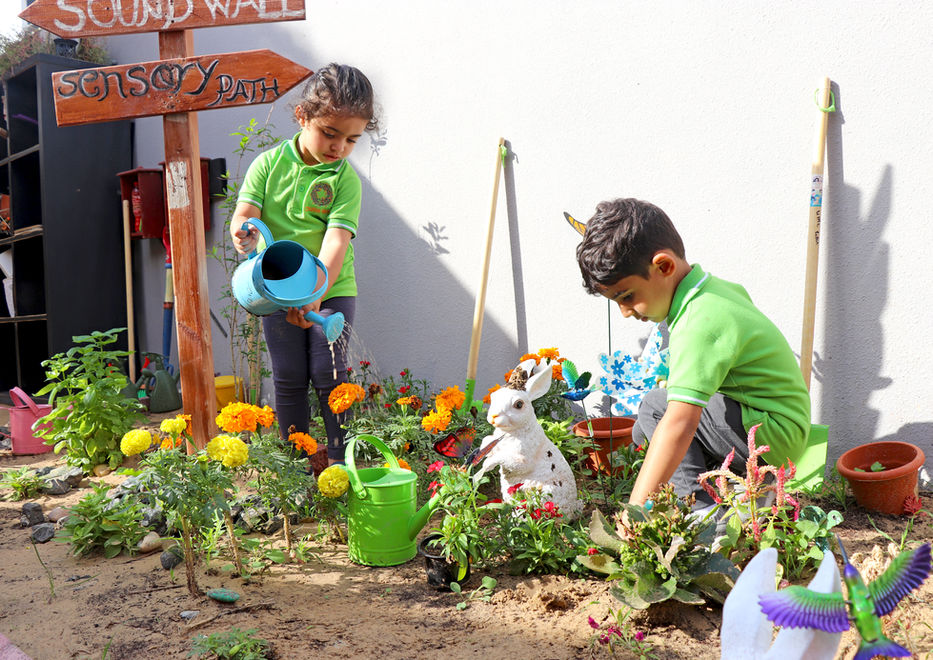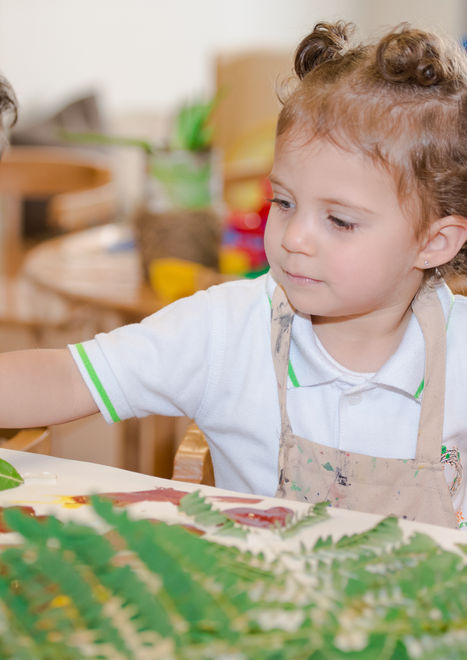top of page

PRE FS
2 years – 3 years
Children in Pre FS Classroom are curious and busy to explore the world by using their all senses. Children of this age acquire the skills to help themselves incredibly.Our curriculum is designed to support their early experience of learning and being independent in a nurturing and child-friendly environment.
Social Skills
● Peer Interaction and Cooperation
Pre-FS children at the early years centre begin to develop essential social skills through peer interaction and cooperation. They engage in activities that promote sharing, taking turns, and collaborating with classmates, fostering a sense of empathy and teamwork.
● Conflict Resolution and Problem-Solving
As they interact with peers and navigate social situations, Pre-FS children learn valuable conflict resolution and problem-solving skills at the early years center. They practice expressing their emotions, listening to others' perspectives, and negotiating solutions to conflicts, laying the groundwork for effective communication and relationship-building.
● Respect for Diversity and Inclusion
Our early years center provides a diverse and inclusive environment where Pre-FS children learn to respect and appreciate differences among their peers. They develop social awareness and empathy by celebrating cultural traditions, learning about various backgrounds, and embracing individual uniqueness, fostering a sense of belonging and acceptance within the community.
● Personal Hygiene Practices
Begin to develop self-help skills related to personal hygiene. They learn basic tasks such as washing hands independently, brushing teeth with assistance, and using tissues or handkerchiefs for wiping noses, promoting health and cleanliness habits.
● Dressing and Clothing Management
Start to explore dressing and clothing management skills at the early years center. They learn to put on and take off simple clothing items such as shirts, pants, socks, and shoes with varying degrees of assistance from teachers or caregivers, fostering independence and fine motor skills development.
● Organizational Skills
Begin to develop organizational skills at the early years center by learning to manage their belongings and personal space. They practice tasks such as putting away toys, tidying up their work areas, and organizing classroom materials, promoting a sense of responsibility and contributing to a cooperative learning environment.
● Language Development
Engage in activities that promote language development, including storytelling, singing, and conversation. They expand their vocabulary, improve pronunciation, and learn basic grammar rules through interactive and language-rich environments facilitated by teachers and peers.
● Nonverbal Communication
Begin to understand and use nonverbal communication cues such as gestures, facial expressions, and body language to express themselves and interact with others at the early years center. They learn to interpret social cues, recognize emotions, and respond appropriately in various social situations, enhancing their communicative competence.
● Listening and Turn-Taking
Practice active listening and turn-taking skills during group activities and discussions at the early years center. They learn to wait their turn to speak, follow conversational rules, and contribute to group conversations by sharing ideas and asking questions, fostering effective communication and social interaction abilities.
Self-Help Skills
Communicative Skills

bottom of page









